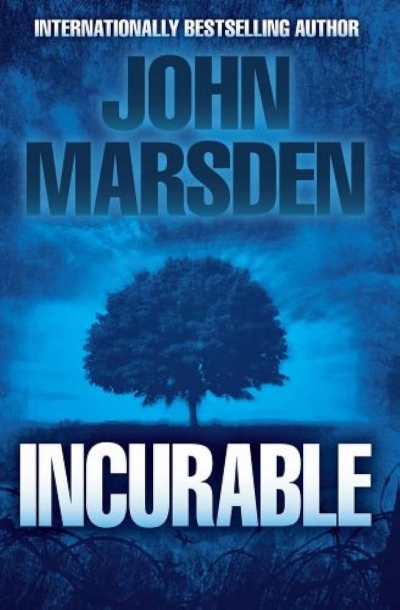Pam Macintyre
Blyton got rid of them, Dahl demonised or mocked them but adults are definitely central in the lives of young people in this recent trio of books for the emerging to the retiring adolescent.
The Keeper (Lothian, $12.95 pb, 160 pp) is aimed at the younger end of adolescence, perhaps written with the view that such readers will be willing to suspend disbelief as they will need to in this romantic story of a troubled young boy’s search for a father. Joel is twelve and lives with his grandmother on the Yorke Peninsula, and fishing is his love but fighting his tormentor, Shawn at school, and generally being disruptive, takes up much of his time. However, from the outset we are alerted to Joel’s essential goodness when he defends the meek Mei who will not fight back.
... (read more)Pam Macintyre reviews 'Preloved' by Shirley Marr, 'Night Beach' by Kirsty Eagar and 'The Messenger Bird' by Rosanne Hawke
Adolescent girls aged sixteen to seventeen are at the centre of these three Young Adult novels: girls whose heightened emotional states prompt supernatural events. Broken families, disconnection from parents, obsession, music, art, and death impel the protagonists to seek solace and healing in the metaphysical. For Shirley Marr (Black Dog Books, $18.95 pb, 272 pp, 9781742031903), it is the Chinese understanding of the ‘preloved’ and their resonance in the present that engenders the attractive ghost Logan. For Kirsty Eagar (Penguin, $19.95 pb, 314 pp, 9780143206552) it is the creative impulse, the painter’s obsession with ‘seeing’ beyond the surface of things, that evokes the dark landscape in which Abbie struggles for meaning. For Rosanne Hawke (University of Queensland Press, $19.95 pb, 252 pp, 9780702238826), it is profound grief following the death of the protagonist’s brother.
... (read more)Learning about the world is one of the great fruits of reading. It can be as much fun as solving a puzzle, provided the information is presented to invite questioning and interpretation. These five attractively produced, accessible books are designed to appeal to their intended audiences, but how well do they avoid the over-simplification that is an inherent danger in tailoring ‘facts’ to the needs and interests of inexperienced readers?
... (read more)This splash of books demonstrates that the vigorous publishing for the young adult market embraces subjects as varied as mental illness, bullying, sleuthing in medieval times, crime in the present, defending an occupied Australia and two dead mothers; and is written across the genres of realism, fantasy and historical fiction. But how much is enticing to the adolescent reader?
... (read more)What a pleasure it is be transported from mundane life and traverse the realms of the imaginary with a good guide. Mind you, some guides and imaginations are better than others, and so it is for these four journeys into the fantastic, which cover a variety of treatments, from Isobelle Carmody’s quest fantasy of small creatures, to the parodic melodrama of Gary Crew, to Emily Rodda’s intertwining of the fantasy world and our own, and Juliet Marillier’s romantic historical fantasy in the inspired setting of Istanbul at the time of the Ottomans.
... (read more)Stella Lees
Philip Reeves’s Infernal Devices (Scholastic) is the third part of a quartet about cities on wheels trundling about a future Earth. It has action, irony, intertextuality and flawed characters – some with dark agendas – and displays an original and startling imagination. Number four will complete the best fantasy since Philip Pullman’s His Dark Materials trilogy. On a smaller scale, and closer to home, Runner (Penguin), by Robert Newton, brings Depression-era Richmond alive. Young Charlie is employed by Squizzy Taylor, until the boy realises he’s doing the devil’s work. Newton’s wit lightens a tough tale with the inventive and laconic speech of Australian battlers, so that, when you’re not blinking back a tear, you’re laughing aloud.
... (read more)



